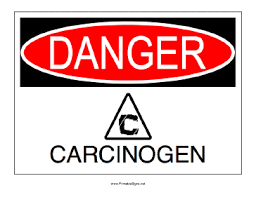One can imagine my disbelief when my aunt yelled at me a few years ago for heating up my chocolate in the microwave with a plastic container, something I did everyday without anyone stopping me. She told me that she recently read an article that said microwaving your food and drinks up in a plastic container can cause cancer because certain chemicals from the plastic seep into the food or drink when heated up.I was shocked to hear this information and vowed to never put plastic in the microwave again, was that for good reason? Does it really cause cancer?
A team from Harvard Medical School seem to think there is some truth to this claim but there is more myth to it. For example, the feared chemicals that were in plastics are called dioxins, which are carcinogens and people believed that while plastic was in the microwave these dioxins would seep into your food and then you would later eat them. Although it seems probable, plastics, along with other substances such as metals and woods, only release dioxins when burned so if you don’t burn your food in the microwave you should be fine because no carcinogens have been released. Also, the FDA plays a huge role in whether or not plastic should go in the microwave. A long time ago, the FDA realized the concern of small amounts of plastic chemicals permeating into food when put in the microwave so they chose to regulate the type of plastic containers being sold that would come in contact with food. They require factories to test the containers and they must uphold the FDA’s standards in order to be sold and be approved for microwave use. Although some types of plastic are dangerous in the microwave, the Harvard Medical group tends to think that despite the little probability of carcinogens getting into your food, it is safe to put plastic in the microwave.
In 2010, another study was done regarding this topic by C. Nerin, D. Acosta, and C. Rubio and the results were published in the journal, “Potential migration release of volatile com pounds from plastic containers destined for food use in microwave ovens.” In this study they constructed plastic containers with specific percentages of chemicals, such as polypropylene and copolymer, and then they were heated up in a special machine at 100 degrees Celsius. After heating it up, scientist then tested for chemicals that flooded the container and found that multiple chemicals, and carcinogens, were found in the container, therefore the heating up of this plastic caused the chemicals to seep from the plastic walls and if there were food in there it would effect that as well.
pounds from plastic containers destined for food use in microwave ovens.” In this study they constructed plastic containers with specific percentages of chemicals, such as polypropylene and copolymer, and then they were heated up in a special machine at 100 degrees Celsius. After heating it up, scientist then tested for chemicals that flooded the container and found that multiple chemicals, and carcinogens, were found in the container, therefore the heating up of this plastic caused the chemicals to seep from the plastic walls and if there were food in there it would effect that as well.
Overall, it seems as if there are some plastics out there that are safe to use in the microwave thanks to the FDA but besides those, people should avoid putting other plastics in the microwave because it can yes indeed cause cancer.


I’m glad someone did a blog post on this. I am always concerned with microwaves in general, especially knowing what is able to be put in them. Being in a dorm, A microwave is the only source of heat for cooking, so I really don’t have a choice in the matter of using it if I want to make mac n’ cheese, and it’s good to know that some plastics can be safe from cancer and I hope that companies use a good plastics.
This was a very interesting blog post! Something that I found about leaving plastic bottles in cars really reminded me of this. However, it turns out this fear was just a myth, and that it rooted from a college student’s thesis. The rumor started out by accusing the DEHA, a material and known carcinogen, in bottles to cause cancer in people who left these bottles in warm environments. Despite these allegations, DEHA isn’t even bottles, debunking the study at its root.
Take a look at the allegations and responses here: http://www.cancer.org/aboutus/howwehelpyou/plasticwaterbottles
This is a game changer as I thought all plastic, big or small, would be detrimental to put in the microwave. Believe it or not I actually thought you weren’t supposed to put plastic in the microwave because it may explode or something, I was completely unaware of the fact that radiation can be let off putting you at a greater risk for cancer. Excellent post and I appreciated you showing both sides to the argument and the differences between them.